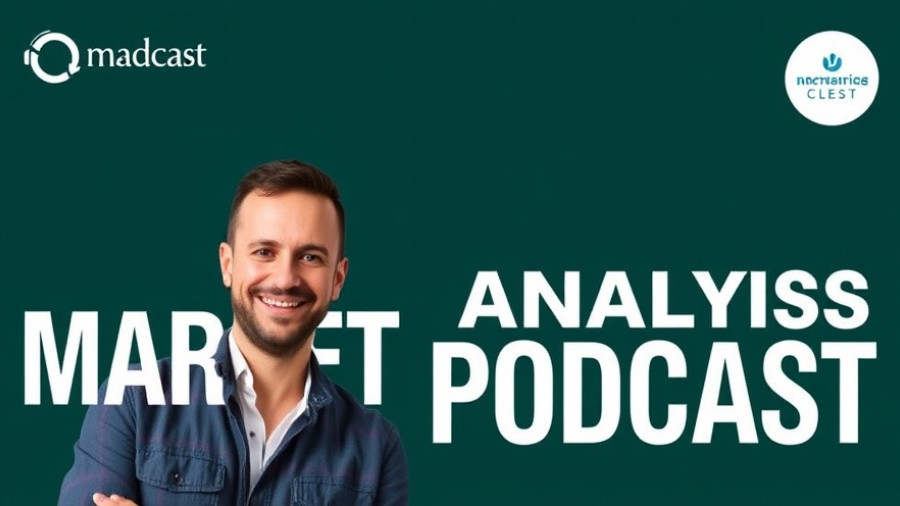
The Evolving Landscape of Market Liquidity
As we delve into the current market dynamics, it's essential to understand the crucial role of liquidity. Recent discussions led by Chris Bulock on Trading the Markets highlighted a stagnation in global liquidity since June 2025. This stagnation affects all markets but presents a more pronounced impact on cryptocurrency due to its smaller size and fragmented liquidity. This has led to unpredictable price actions, especially in altcoins, inducing uncertainty amongst traders and investors.
In Trading the Markets: October 22, 2025, the discussion dives into the significance of liquidity in current market conditions, prompting a deeper analysis of its implications.
Are We at the Brink of a Breakout?
Despite the current complacency in the market, signs are emerging that suggest a potential breakout could be looming. According to Bulock, the volatility indicators, particularly the Bollinger bands for Bitcoin, reveal a coiling effect that historically precedes significant price movements. This volatility contraction, paired with macroeconomic trends such as anticipated cuts in interest rates and possible stimulus measures, indicates that we may be on the cusp of a new rally.
Implications of Potential Government Stimulus
Another interesting point raised was former President Trump's ongoing hints at future fiscal measures, including the distribution of tariffs as stimulus checks. This isn’t merely speculation; it has been reiterated so frequently that it carries weight and hints at a significant influx of liquidity into the market. Such government actions typically spur economic activity, but it’s critical to follow through on their impact in real-time, especially for budget-conscious individuals navigating rising living costs.
Stock Market and AI: The New Powerhouses
With the crypto space facing hurdles, attention is shifting towards AI-driven stocks. Bulock advocates for investments in companies involved in AI infrastructure rather than established tech giants. By focusing on the "picks and shovels" of the industry—such as semiconductor firms like Micron or AMD—investors can tap into the burgeoning AI market without competing directly against high valuations. This pivot towards AI stocks aligns with long-term economic potential and offers viable investment strategies for those looking to safeguard their finances against market volatility.
Dollar-Cost Averaging: A Strategy for Navigating Uncertainty
For budget-conscious individuals in the UK, embracing investment strategies like dollar-cost averaging can provide a structured approach to navigating current market conditions. This method allows investors to steadily allocate funds over time, reducing the risk of making significant investments during a peak market time. Particularly during periods of uncertainty or rising living costs, this strategy can foster a disciplined investment habit while minimizing the anxiety associated with market volatility.
Market Sentiment: A Gauge for Future Strategies
The current fear and greed index plummeting to 29 indicates a market sentiment reset, which usually serves as a foundation for upward trends. With fear being high, contrarian investors might find opportunities to buy into undervalued assets before a rally. This perspective could play a pivotal role for families and individuals in the UK striving to enhance their financial security while navigating inflationary pressures.
Key Takeaways: Preparing for Market Shifts
As we observe the potential shifts in the market, UK families should minimize exposure to overly speculative investments while remaining alert to actual infrastructure and productivity sectors. The fundamental value of what companies offer should be at the forefront of investment decisions. In doing so, they not only place themselves in a potentially advantageous position but also mitigate the risk associated with market downturns.
To keep up with emerging market trends, seek to diversify and allocate resources wisely. Investing in emerging technologies and maintaining a flexible strategy can ultimately lead to sustainable financial well-being.
 Add Row
Add Row  Add
Add 




Write A Comment